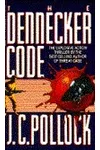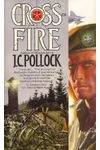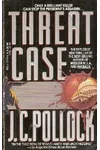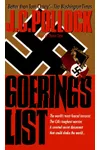Picture a shadowy storyteller weaving tales of espionage and covert ops straight from the heart of the Cold War—meet J.C. Pollock! This bestselling military fiction author burst onto the scene with The Dennecker Code in 1982, captivating readers with gritty, insider-like narratives that feel ripped from classified files. Shrouded in mystery, Pollock’s rumored ties to the CIA and military service only deepen the intrigue surrounding his thrilling novels.
Pollock’s work stands out for its pulse-pounding realism and complex characters, drawing fans into a world where spies, soldiers, and secrets collide. But who is this enigmatic author, and why do his stories hit so hard? Let’s dive into the life, works, and lasting impact of J.C. Pollock, a master of military thrillers.
The Making of J.C. Pollock
Little is known about J.C. Pollock’s early life, which only fuels speculation about his past. Some believe he may have served in Vietnam, possibly with ties to the CIA’s secretive Studies and Observations Group (SOG), given the uncanny authenticity of his novels. During a 1993 TV interview promoting Goering’s List, Pollock cryptically stated, “I wasn’t in the military when I was in Vietnam,” sparking rumors of covert involvement. Whether fact or fiction, this air of mystery shaped his persona as a writer who seemed to know more than he let on.
Pollock debuted in 1982 with The Dennecker Code, a novel that blended historical intrigue with modern-day action. His background, whatever it may be, clearly informed his ability to craft stories that resonate with readers craving authentic military and espionage tales. By the 1990s, he also wrote under the pseudonym James Elliott, further cloaking his identity.
J.C. Pollock’s Unforgettable Stories
Pollock’s novels are a masterclass in military fiction, blending high-stakes action with intricate plots and morally complex characters. His debut, The Dennecker Code (1982), follows Special Forces veteran Jack Callahan as he uncovers a decades-old Nazi escape plan, fighting to survive in a deadly game of cat and mouse. The book’s vivid detail and relentless pace set the tone for Pollock’s career.
Centrifuge (1984) dives into Cold War paranoia, with a rogue KGB agent stealing a nuclear weapon, threatening global chaos. The story’s protagonist, a vengeful Delta Force veteran, navigates a web of betrayal with razor-sharp intensity. Similarly, Crossfire (1985) pits a former CIA operative against a drug lord’s assassination plot, showcasing Pollock’s knack for weaving real-world tensions into fiction. His final novel as Pollock, Goering’s List (1993), explores Nazi art theft and terrorism, cementing his reputation for tackling historical and contemporary intrigue.
Pollock’s style is gritty yet accessible, with a focus on authenticity that predates Tom Clancy’s rise. His characters—often battle-hardened veterans or operatives—grapple with loyalty, revenge, and the cost of their actions, making his stories both thrilling and thought-provoking. Writing as James Elliott, he penned novels like Cold Cold Heart (1996), maintaining his signature intensity.
Why J.C. Pollock Matters
J.C. Pollock’s impact lies in his ability to bring the shadowy world of espionage and military operations to life with unmatched realism. His novels, published during the height of Cold War tensions, offered readers a front-row seat to conflicts that felt all too plausible. Fans and critics alike praise his work for its technical accuracy and emotional depth, qualities that influenced later military fiction authors.
Despite his relatively short publishing run (1982–1993 as Pollock), his books remain cult favorites among thriller enthusiasts. The speculation about his CIA ties and elusive persona only adds to his legacy, making him a figure as compelling as his characters. Pollock’s ability to vanish from the public eye after 1993 mirrors the covert operatives he wrote about, leaving readers hungry for more.
About J.C. Pollock
- Key Works: The Dennecker Code (1982), Centrifuge (1984), Crossfire (1985), Goering’s List (1993)
- Pseudonym: Wrote as James Elliott for novels like Cold Cold Heart (1996)
- Genre: Military fiction, espionage thrillers
Ready to step into the world of covert ops and high-stakes intrigue? Snag The Dennecker Code and dive into J.C. Pollock’s gripping military thrillers today!





